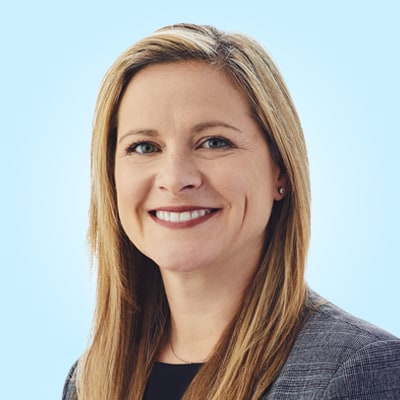Bias and stereotypes are as ubiquitous as the air that we breathe. When this bias leads to microaggressions in legal workplaces, many people are unsure what to do. During this session, Ama K. Karikari, Esq. will define bias and microaggressions while providing tools for any lawyer to become an upstander by disrupting microaggressions when they occur. The program will cover many biases surrounding race, gender, and disability, among others. This is a must-watch for lawyers wondering how to foster equity, inclusion, and accessibility in their law offices.
Learning Objectives:
- Understand implicit bias
- Identify biases and microaggressions in legal environments
- Understand what it means to be an upstander in the legal environment
- Learn tools for encouraging inclusion in the legal environment
- Introduction
- About Ama Karikari and her background in diversity and inclusion
- Intention of the program
- Belonging, community, and cross-cultural understanding
- Understanding Bias and Stereotypes
- Defining implicit vs. explicit bias
- Defining stereotypes
- Explaining stereotypes that often emerge in legal environments
- Demystifying intersectionality
- Understanding Microaggressions
- Defining microaggressions
- Defining microinsults
- Defining microinvalidations
- Reviewing common microaggressions in legal environments
- How Bias Impacts Equity in the Legal Profession
- Reviewing case studies on biased work evaluations
- Reviewing statistics on bias based on disability
- Becoming an Upstander in the Legal Environment
- Defining the bystander effect
- Reviewing factors that exacerbate and factors that mitigate the bystander effect
- Opportunities to be an upstander in the legal environment
- How to handle microaggressions when they occur
- Role-play scenarios
- Tools for creating an upstander culture
- Addressing concerns about reverse discrimination
- Conclusion & Questions & Answers
This webinar is divided into section summaries, which you can scan for key points and then dive into the sections that interest you the most.
Please note this AI-generated summary provides a general overview of the webinar but may not capture all details, nuances, or the exact words of the speaker. For complete accuracy, please refer to the original webinar recording.
*CLE credit is only available to Justia Connect Pros. Not a Pro? Upgrade today>>
Status: Approved
Credits: 1.00 Implicit Bias
Earn Credit Until: June 30, 2026
Status: Approved
Credits: 1.20 Diversity, Inclusion, and Elimination of Bias
Earn Credit Until: September 29, 2026
Status: Approved
Credits: 1.00 Ethics
Earn Credit Until: February 28, 2026
Status: Approved
Credits: 1.00 Legal Ethics/Professional Responsibility
Difficulty: All Levels
Earn Credit Until: December 31, 2025
Status: Approved
Credits: 1.00 Legal Ethics/Professional Responsibility
Earn Credit Until: August 31, 2026
This presentation is approved for one hour of Implicit Bias CLE credit in California, one hour of Ethics CLE credit in North Carolina, and one hour of Legal Ethics/Professional Responsibility CLE credit in South Carolina (all levels). This program has been approved by the Board on Continuing Legal Education of the Supreme Court of New Jersey for 1.20 hours of total CLE credit. Of these, 1.20 qualify as total hours of credit for Ethics/Professionalism, including 1.20 hours in Diversity, Inclusion, and Elimination of Bias. This course has been approved for Minimum Continuing Legal Education credit by the State Bar of Texas Committee on MCLE in the amount of 1.00 credit hours, of which 1.00 credit hours will apply to Legal Ethics/Professional Responsibility credit.
Justia only reports attendance in jurisdictions in which a particular Justia CLE Webinar is officially accredited. Lawyers may need to self-submit their certificates for CLE credit in jurisdictions not listed above.
Note that CLE credit, including partial credit, cannot be earned outside of the relevant accreditation period. To earn credit for a course, a lawyer must watch the entire course within the relevant accreditation period. Lawyers who have viewed a presentation multiple times may not be able to claim credit in their jurisdiction more than once. Justia reserves the right, at its discretion, to grant an attendee partial or no credit, in accordance with viewing duration and other methods of verifying course completion.
At this time, Justia only offers CLE courses officially accredited in certain states. Lawyers may generate a generic attendance certificate to self-submit credit in their own jurisdiction, but Justia does not guarantee that lawyers will receive their desired CLE credit through the self-submission or reciprocity process.

Milestales
Ama K. Karikari, Esq. is the founder of Milestales Publishing and Education Consulting and the author of The Talk: A Black Family’s Conversation about Racism and Police Brutality, Sunne’s Gift: How Sunne Overcame Bullying to Reclaim the Gift, and other best-selling books. Read More ›


